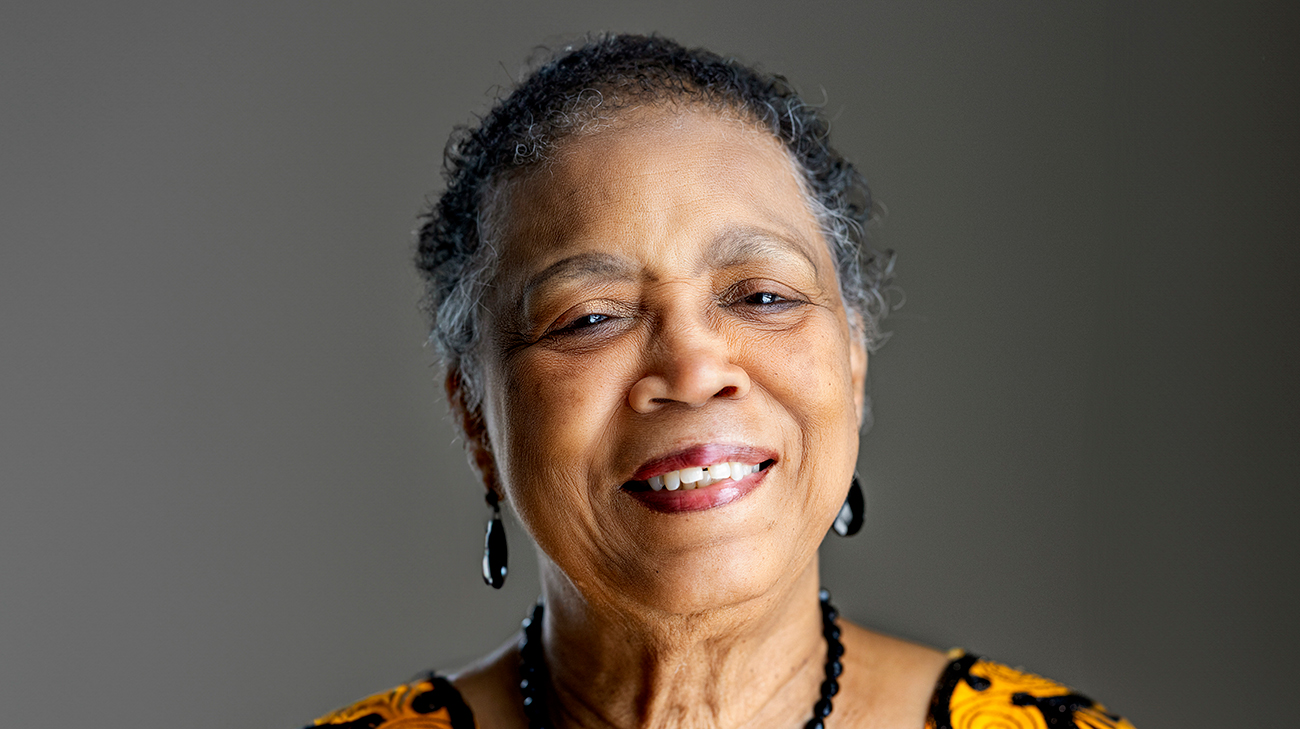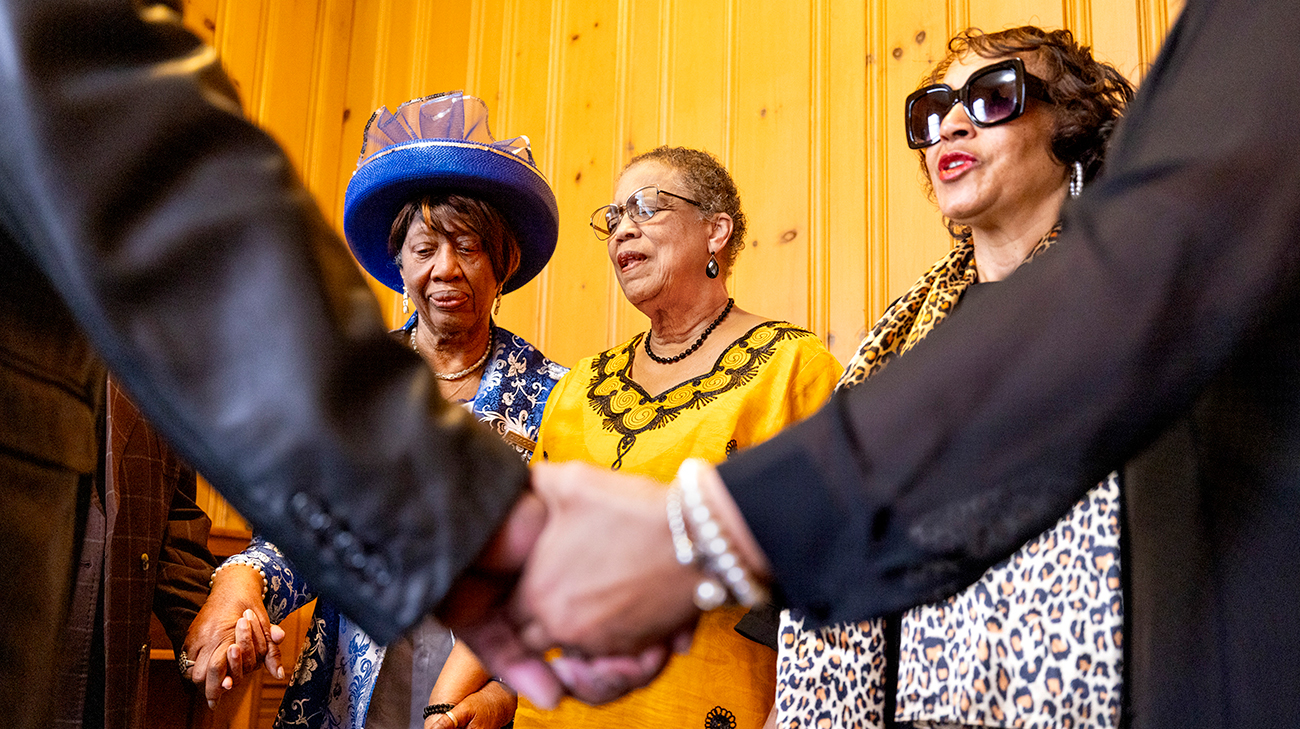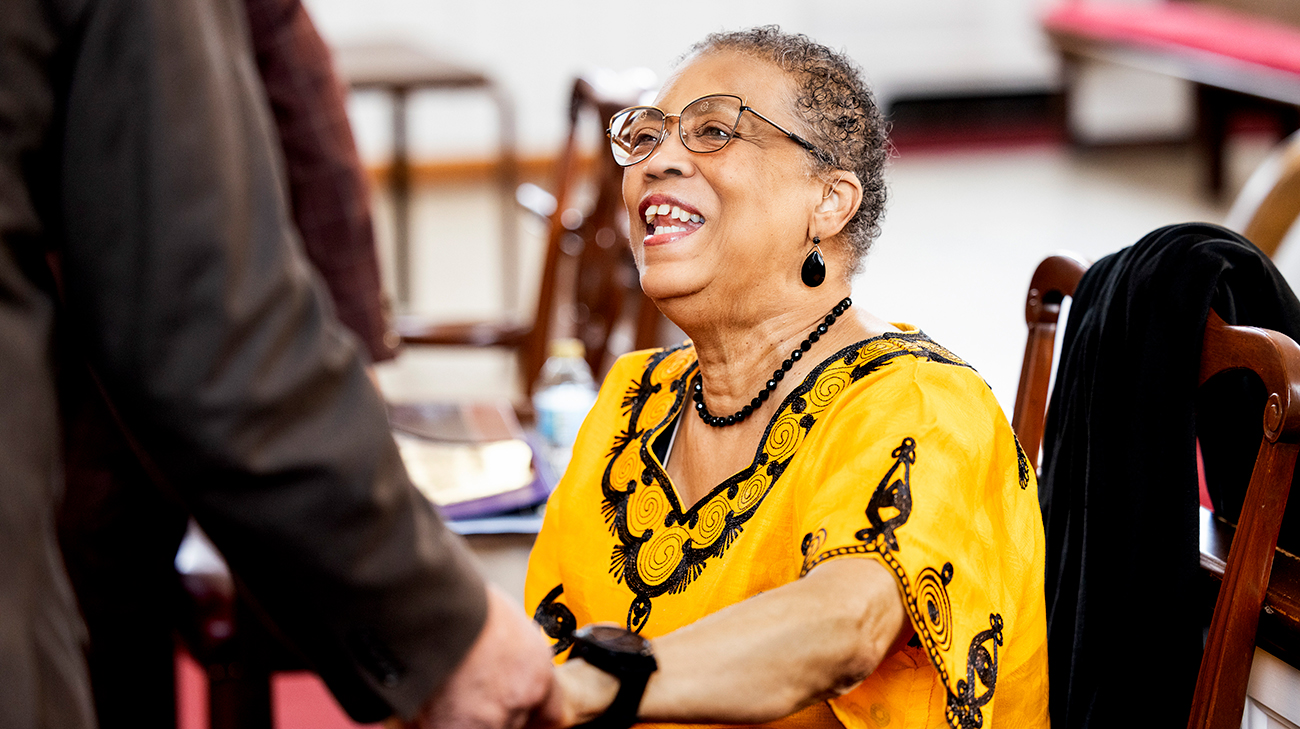
Charlene J. Smith describes herself as a person who loves life and can be seen at her church on the east side of Cleveland, Ohio, every Sunday. Charlene, an ordained minister, leads a prayer group and bible study each week. Along with being passionate about the church, the 76 year old has made it her mission to raise awareness about chronic kidney disease after being diagnosed with the condition, which she refers to as the silent killer.
“For people I know, most of them were unaware they had kidney disease until their kidneys shut down, and they were at the point where they needed to go on dialysis,” says Charlene.
Chronic kidney disease means there’s damage to your kidneys, and they aren’t working as well as they should. People typically don’t have noticeable symptoms in the early stages of kidney disease, and estimates show up to 9 in 10 adults with chronic kidney disease don’t know they have it. Charlene was one of them. “When I found out, it came as a complete shock,” she recalls.
Leading up to her diagnosis, Charlene says she was working to manage diabetes and high blood pressure, which are the two most common causes of chronic kidney disease. When her blood pressure levels couldn’t be stabilized, it was recommended she see a doctor who specializes in treating conditions affecting kidneys. She became a patient of Cleveland Clinic nephrologist John Sedor, MD, and soon after decided to participate in a multi-site study Cleveland Clinic is part of called the Kidney Precision Medicine Project (KPMP).
Individuals involved in the study undergo a kidney biopsy, which is evaluated along with other samples from the patient. The goal is to better understand chronic kidney disease and acute kidney injury to find new treatment options down the road.
Charlene’s biopsy confirmed she had chronic kidney disease.

Charlene is very active in her community through her church and takes different opportunities to educate people about kidney disease. (Courtesy: Cleveland Clinic)
“There are five stages of chronic kidney disease with stage 5 being the most advanced. Charlene was in stage 3b, so her disease was moderately to relatively advanced,” says Dr. Sedor.
Charlene adds, “Dr. Sedor keeps you calm and comfortable even when the diagnosis isn't good. When he told me I had chronic kidney disease, he couched it in such a way I didn't panic. It was, ‘You have this, but we have an opportunity to do something about it.’”
From there, Charlene worked with her care team to try and prevent any further damage with a focus on managing her blood pressure and diabetes through medication and lifestyle changes.
“Particularly, when the Kidney Precision Medicine Project first started, there hadn't been new treatments for progressive kidney disease for decades. The goal of the study is to use modern scientific methods to try and get a better understanding of what the causal pathways are to identify new targets for treatments that are individualized for each patient,” says Dr. Sedor, one of the physician-investigators for the study.
Charlene says taking part in the study has allowed her to further understand her condition and feels her participation is helping the greater good.
“As an African American woman, participating in the Kidney Precision Medicine Project was important to me because we are few in most trials,” says Charlene. “Because of the gaps in healthcare access and quality, people need to better understand the significance of clinical trials and that when done properly, can be a benefit to everybody.”
According to the National Kidney Foundation, African Americans are nearly four times more likely, and Hispanics are 1.3 times more likely, to have kidney failure compared to White Americans. That’s why Dr. Sedor says it’s crucial for these communities to be represented in clinical trials when trying to find new treatments for conditions like kidney disease.

While managing chronic kidney disease, Charlene continues to enjoy life and encourages others to be proactive about their health. (Courtesy: Cleveland Clinic)
“How are we going to effectively come up with ways to treat this disease if we don't have a research group that’s representative of the communities disproportionally impacted by it,” asks Dr. Sedor. “To address the barriers to care and differences in health outcomes, you need to address the differences in research first.”
Charlene's kidney function is stable, and she’s been able to prevent any further damage by keeping her diabetes and blood pressure in check. Along with continuing to be a leader in her church, the grandmother of two looks forward to enjoying more time with family, dinners with friends and cheering on the Pittsburgh Steelers during football season. After all she’s learned through her health journey, Charlene encourages others to be proactive if they have risk factors for kidney disease.
“If you have high blood pressure, if you are a diabetic, you need to ask your doctor about kidney function tests. If you are diagnosed with chronic kidney disease, it does not necessarily mean you will need a transplant and go on dialysis. It does mean you have to be conscious of your lifestyle, eating habits and what your body is trying to tell you,” says Charlene.
Related Institutes: Glickman Urological & Kidney Institute

